Hunting Kurds: Erdoğan Continues Bombing Rojava
By KCS Research Team in Rojava
“The attacks specifically targeted the region’s vital infrastructure, including oil, water, and electricity, significantly impacting the daily lives of Rojava’s people. The Turkish government’s objective is the suppression of Kurdish identity. For decades, Turkey has waged a relentless campaign against the Kurdish cause, irrespective of location. These attacks on the Kurds in Syria have persisted unabated for eleven years, wreaking havoc on essential services like electricity, water, and oil.”
— Farhad Ahmed, resident of Tirbespî
Following the threats of Turkey’s Foreign Minister, Hakan Fidan, regarding the targeting of infrastructure in Rojava, (north and east Syria), the Erdoğan regime in Turkey initiated a military offensive involving warplanes and drones, spanning from Derik to Shahba on October 5th, 2023.
On that day, the Turkish state launched an extensive assault on Rojava’s infrastructure by focusing on power stations in the Heseke region. Tragically, these illegal attacks resulted in the loss of civilian lives and internal security personnel, inflicting severe damage to the region’s infrastructure. As a grim consequence, civilians found themselves without access to electricity, water, and gas.
Among the areas most severely impacted by the Turkish military’s offensive is the Tirbespî region. Situated within the Qamişlo canton and enroute to Derik, Tirbespî, though a small town, is home to a diverse population of Kurds, Arabs, Christians, and Yazidis. Furthermore, it is known for holding numerous oil stations and wells.
The Kurdish Center for Studies (KCS) responded by initiating a series of on-site investigations, involving its team on the ground in Rojava, to document the transgressions and violations committed by the Turkish state. Furthermore, KCS conducted visits to the locations affected by the attacks, thoroughly documenting these incidents through photographic and video evidence.
The following relevant statistics help tell the story of the victims of the Turkish state’s attacks and the specific infrastructure that became targets. Our hope is that by displaying the widespread scope of these Turkish war crimes against civilian sites, the international community will demand accountability against the perpetrators ordering them in Ankara.
“Turkeys offensives have inflicted severe suffering on our populace. The targets of these attacks were not the military; instead, Turkey disrupted our gas, water, oil, and even civilian vehicles. Turkey seeks to dismantle our community. The attacked areas had no military relevance. Turkey left our people without access to water, electricity, and gas. Ever since Erdoğan initiated attacks with planes, cannons, and rifles, it has been civilians who have borne the brunt. Must all our people be considered soldiers?”
— Leman Yousef, resident of Tirbespî
The Victims
Beginning with the toll of victims, the Turkish state’s offensive on October 5th against Rojava immediately led to the tragic loss of nine civilians, including five in Kobane, three in Hasakah, and one in Tirbespî, with two of the casualties being women. Simultaneously, ten civilians sustained injuries as a result of Turkey’s attacks, including four children and three women. The occupying Turkish state also subjected a security center in the southern outskirts of Amûdê to bombardment, resulting in the loss of six members of the Internal Security Forces (Asayish).
Subsequently, the Turkish state carried out a devastating attack on the training center of the Internal Security Forces in a village in Derik. The result was the martyrdom of 29 members of the anti-narcotics forces, with an additional 28 individuals sustaining injuries.
The Widespread Nature of the Attacks
According to the documentation conducted by KCS, the Turkish military conducted numerous attacks on infrastructure and factories in Qamişlo, Heseke, Shahba, Derik, Kobanê, Manbij, and the southern outskirts of Gire Spi. Among the critical infrastructure facilities struck were electricity and oil stations, as follows:
‣ In Tirbespî, the Turkish military aimed its assaults at seven oil stations and wells, rendering them inoperative. Additionally, the Turkish state targeted an electricity station and grain warehouse in Tirbespî, leading to a complete blackout in the entire Aliyan region.
‣ In Derik, the Turkish military bombed the sole gas station in Swediye, resulting in a prolonged interruption of gas production. Furthermore, the Turkish state targeted the electricity station in the village of Tekilbeqil, belonging to the Derik region, causing it to go offline. Simultaneously, the Turkish state completely destroyed the Covid hospital in the city of Derik, which had been serving more than 100,000 people.
‣ In Qamişlo, the Turkish military inflicted damage on the electricity station, rendering it non-operational.
‣ In Amûdê, the Turkish military targeted the grain warehouse and the electricity station, causing a power outage in the city.
‣ In Bozanê (Ain Issa), the Turkish military attacked the water station, the electricity station, and the grain warehouse.
‣ In Heseke, the Turkish military bombarded the electricity station, the water station, the construction factory, and the Washokani camp (housing IDPs from Serê Kaniyê).
‣ In Kobanê, the Turkish military targeted a paint factory and completely demolished a hospital.
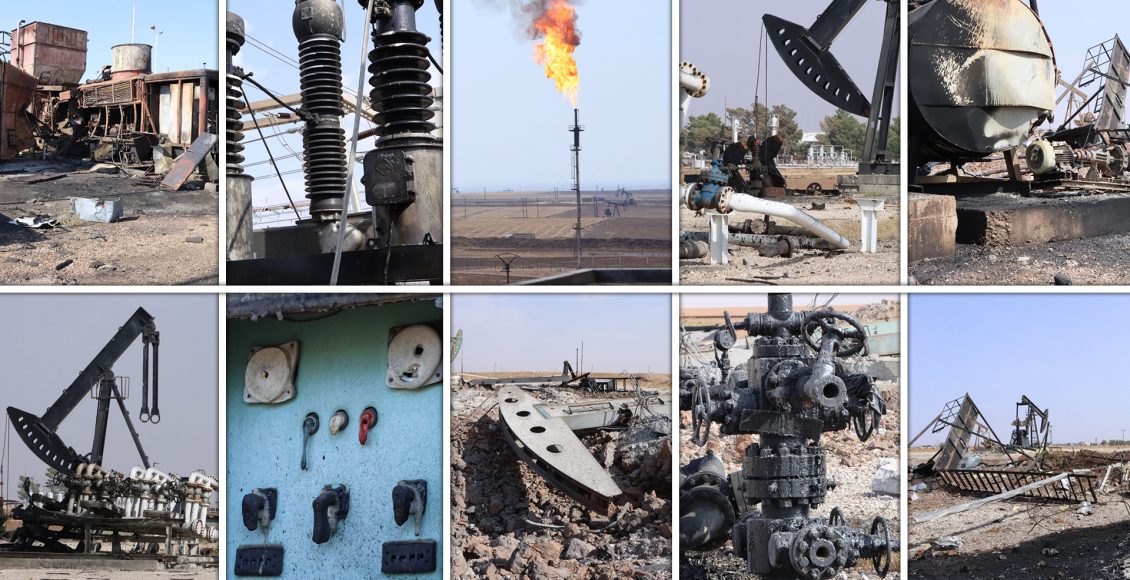
“The Turkish government targeted our region and systematically crippled essential services. They aimed to undermine the Autonomous Administration of North and East Syria. Presently, the living conditions for the local populace are exceedingly challenging, marked by a scarcity of electricity and diesel fuel. These attacks are not isolated incidents, as the Turkish state has subjected us to numerous prior offensives. We hope that these attacks come to an end.”
— Haval Yousef, resident of Tirbespî
School Closures
Due to the indiscriminate attacks by the Turkish military, the Board of Education of the Jazira Region had no choice but to close 31 schools, preventing 4,039 children from attending lessons due to the risk of Turkish state attacks. The following regions in Rojava witnessed school closures:
‣ Two schools in Chil-Axa
‣ Five schools in Derik
‣ Five schools in Tirbespî
‣ Five schools in Dirbêsiyê
‣ The school in the Washokani Camp for Serê Kaniyê IDPs in Heseke
‣ Fifteen schools in the Zirgan district, Heseke region
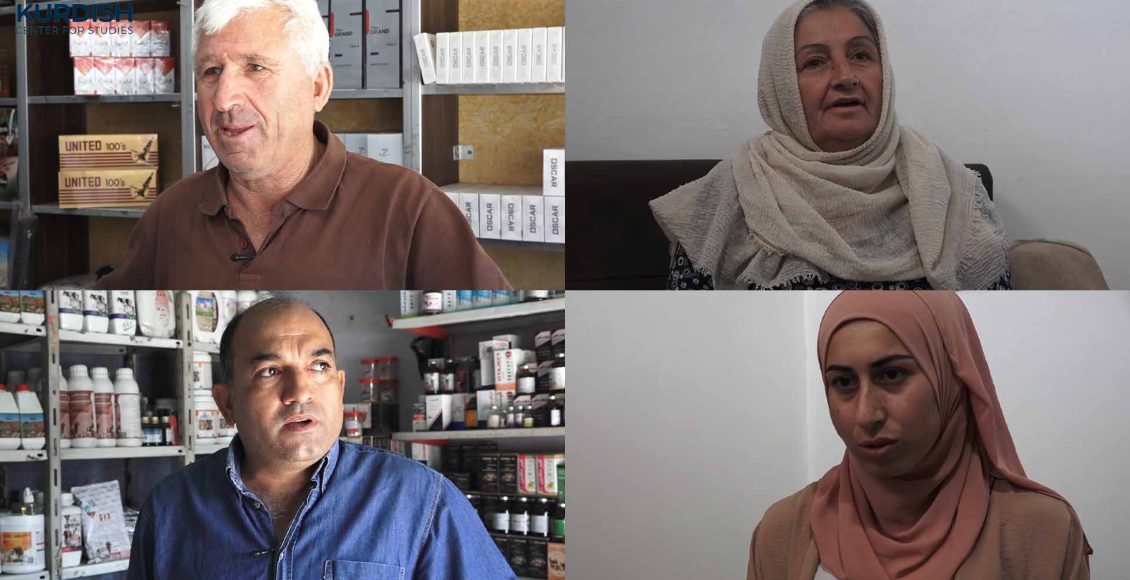
“The attacks against us are gravely severe and challenging; the Turkish state shows no restraint. It is systematically cutting off our access to necessities such as water, electricity, and diesel fuel. What is the Turkish state seeking from us? We currently reside on our ancestral land and within our city, yet the Turkish state continues to harass us. Their aim is to force us off our homeland, but we remain resolute in staying.”
— Evin Shexmous, resident of Tirbespî
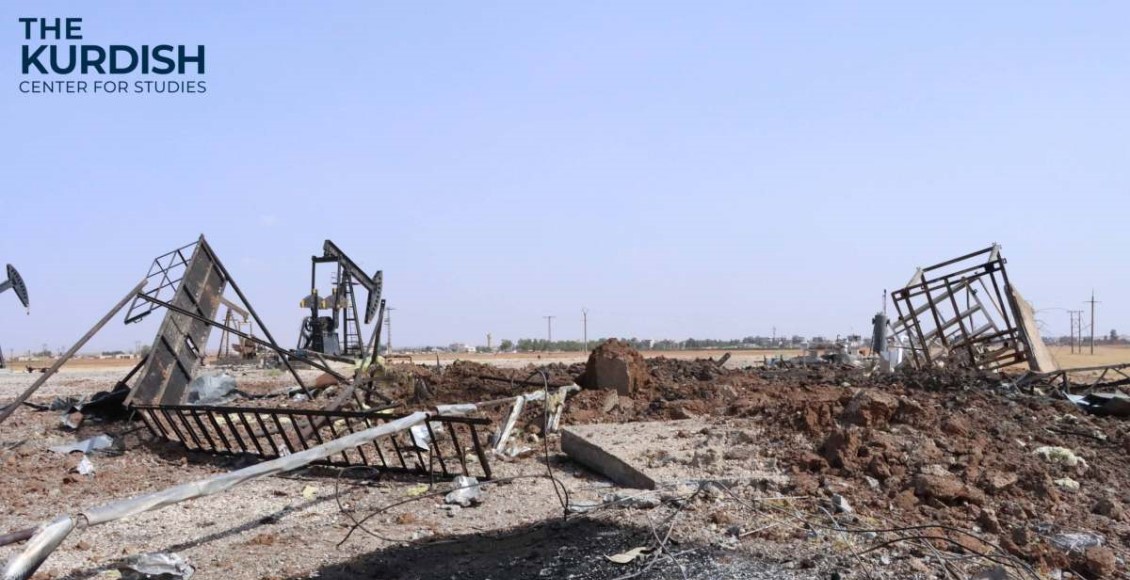
Water Supply Disruption & Household Gas Shortages
The Turkish targeting of electricity stations from Derik to Hasakah led to the cessation of all water stations’ operations, resulting in dire conditions for civilians.
Moreover, Rojava, as well as the entire northern and eastern regions of Syria, relies on the Swediye gas plant, located in the Derik region, to supply household gas and electricity. As such, the Turkish military repeatedly targeted the Swediye plant, causing it to cease operations. Consequently, both gas and electricity supplies were disrupted.
As a result, the KCS went to personally interview the administrators responsible for managing energy supplies and the Swedi Plant for the AANES.
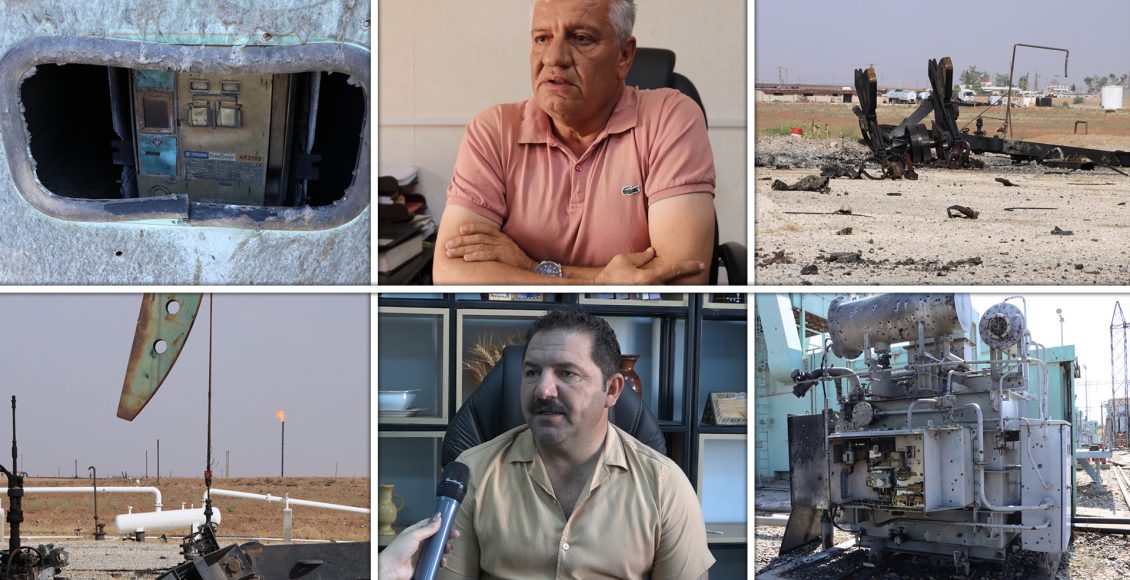
INTERVIEWING THE ENERGY OFFICE CO-CHAIR
The Kurdish Center for Studies (KCS) conducted an exclusive interview with Ziyad Ristem, Co-Chair of the Energy Office within the Autonomous Administration of Northern and Eastern Syria (AANES) to learn about the scope and impact on the daily lives of civilians, especially in terms of access to electricity and water.
KCS: How many electricity stations in Rojava were targeted, and which regions were particularly affected?
Ristem: “The Turkish state targeted five electricity transmission stations in the Rojava region, specifically: the Rojava Dam near Heseke, Qamislo station in the north, Amûdê city station, Tirbespî city station, and Siwedi station in Derik.”
KCS: What impact has this had on local civilians?
Ristem: “The region already suffered from electricity shortages, which had negative consequences. However, with the recent attacks, electricity was entirely cut off in the Jazira region, resulting in a water shortage as well. Additionally, the Swedi gas station was rendered inoperative due to the Turkish attacks, causing a disruption in gas supply to households. Furthermore, water stations were also affected by the power outage, impacting the entire population of the Jazira region in terms of water and electricity.”
KCS: How does the electricity cut affect civilians’ access to drinking water in the region?
Ristem: “The Alouk water station, which was the sole provider of drinking water to Hasakah and IDP/refugee camps such as Al-Hol, Arisha, and Washokani, went offline due to the attacks on the stations. Similarly, other water stations in Qamislo, Tirbespî, Girke Lege, and Derik were disabled since they rely on electricity for operation. Many of these stations cannot be powered by generators. Consequently, the entire Jazira region was left without access to drinking water. In essence, the water stations that were disabled include Alouk station, Qamislo station, Safan station in Derik, Iweja station in Qamislo, Chaq-Chaq station, as well as other stations in various cities such as Tel Kocher, Tel Berak, and Tel Hamis. Therefore, the targeting of the Swedi station led to the suspension of these water supplies.”
KCS: How much funding is required to repair the damages?
Ristem: “Initial assessments indicate that eight electricity transformers were targeted, including direct damage to an electricity turbine in Swedi, which also affected other turbines. The preliminary estimate for the required repairs is approximately $50 million.”
KCS: Does the Autonomous Administration of North and East Syria possess the resources to cover these losses?
Ristem: “The Autonomous Administration of North and East Syria is mobilizing its resources through its energy offices in the regions and the Jazira region. However, the region faces limitations, especially when key facilities are targeted. Procuring equipment and materials for repairs becomes challenging. Although the Autonomous Administration has engineering teams in place, finding alternative transformers is difficult.”
KCS: How can the international community support these repair efforts?
Ristem: “Regrettably, the international community has yet to recognize the Autonomous Administration, and crucial decisions to safeguard the region have not been made. It is imperative that the Turkish state’s attacks are halted, as well as its violations of human rights, which employ water and electricity as weapons against the population in northern and eastern Syria by cutting off the Euphrates River’s water and targeting water and electricity stations. Once these violations cease, discussions on reconstruction can begin.”
INTERVIEWING THE SWEDI GAS PLANT ADMINISTRATOR
The KCS also conducted an exclusive interview with Agit Abdul-Majid, the Swedi Gas Plant Administrator, who shared insights on the damages sustained to the oil fields and the Swedi Gas Plant.
KCS: On which day did the Turkish government bomb the Swedi station?
Abdul-Majid: “On October 6, the Swedi station’s core was struck by Turkish state aircraft at approximately 11 am. Prior to that, oil stations such as Oda and Zarib had also been targeted. The station went offline, and the electricity supply was disrupted as a result of the bombing. We attempted to restore the station at one point, but the Turkish state’s bombings continued until 6 o’clock in the evening. Firefighters were also engaged in efforts to extinguish the fires at the station.”
KCS: What level of damage did the Swedi Station incur?
Abdul-Majid: “The station comprises several significant components, and the Turkish state targeted a crucial section of the station, rendering it entirely nonfunctional. Consequently, the station ceased operations, and its associated electricity and gas supply were also disrupted. The Swedi station encompasses gas, electricity, and oil components, all of which were affected by the attacks. Consequently, both gas and electricity supplies were disrupted.”
KCS: Do you have the resources required to rebuild the damaged infrastructure?
Abdul-Majid: “While we possess certain resources, we face significant challenges. Our engineering teams are dwindling daily, as we have previously stated that the Turkish state’s objective is to depopulate our territories and pave the way for forced migration. This has a substantial impact on our engineering teams. Moreover, the station is extensive and requires numerous parts and equipment. We are under siege, and procuring parts and equipment is not feasible. We can produce some components, but others exceed our capabilities and must be imported from European countries, particularly some parts and equipment from the United States. Consequently, due to the siege, it will take time to acquire these components, and a substantial amount of funding will be needed. In essence, the gas plant alone requires $2 million for re-equipping.”
KCS: Shifting to the matter of oil site targeting, how many oil centers have been targeted by the Turkish state thus far?
Abdul-Majid: “Approximately 15 oil fields were targeted. Among them, 3-4 oil stations and wells around Tirbespî were struck, along with oil stations in the Aliyan area (situated between Girke Lege and Tirbespî), such as Seidy, Zarib, and Irian. Additionally, 3-4 oil stations in Swediye were also targeted, leading to the suspension of numerous stations.”
KCS: What is your appeal to the international community, particularly the International Coalition Against ISIS, for assistance?
Abdul-Majid: “This is the responsibility of all human rights organizations and international bodies. However, when it concerns our region, they often turn a blind eye. The actions of the Turkish state violate international laws, yet the international community remains largely silent. Consequently, we call upon everyone, including human rights organizations and European institutions, to put a stop to the Turkish state’s actions. Currently, 4-5 million people in northern and eastern Syria are without electricity, water, gas, and bread, and they face dire circumstances.”



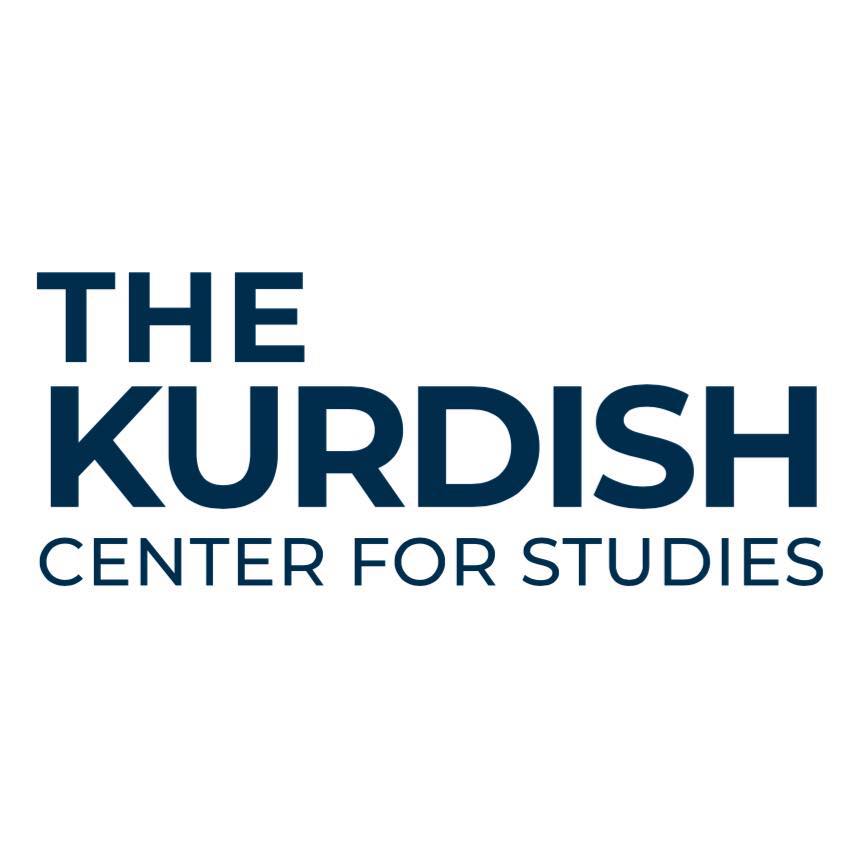
Comments are closed.